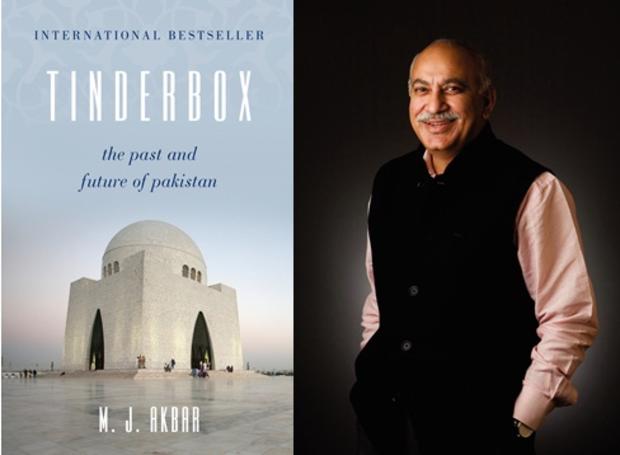"Tinderbox: The Past and Future of Pakistan," by M.J. Akbar
Jeff Glor talks to M.J. Akbar about "Tinderbox: The Past and Future of Pakistan"
Jeff Glor: What inspired you to write the book?
M.J. Akbar: The freedom of India from British rule in 1947 was one of the most significant events of the 20th century; it marked the end of the era of European colonisation of Asia and Africa. That historic popular movement was led by a genius called Gandhi, who believed in non-violence, equality of all faiths, and had an uncompromising conviction in democracy.
Why then did he fail to keep India united? Why were two nations born after the British left, secular India and Islamic Pakistan? What were the consequences for the region and the world, then and stretching into a troubled future? Six decades later, why is democratic India moving towards social stability, economic progress and a gradual resolution of the many internal conflicts that bedeviled its existence up to the 1980s? Why has Pakistan, created as a fortress of the faith for Muslims, turned into a land where more Muslims are being killed on an average every day than in the rest of the Muslim world combined? These and many other questions have been at the heart of my enquiry into my own, and my country's past: I am an Indian Muslim and wanted to know which of the two ideas, that of Gandhi's India and that of Muslim League's Pakistan, would prove to be more viable when measured on the scales of time. Indians and Pakistanis are the same people: why then have their two countries travelled on such different trajectories? My answer is: the idea of India is stronger than the Indian, and the idea of Pakistan has proved weaker than the Pakistani.
JG: What surprised you the most during the writing process?
MA: Facts never ceased to surprise me; and the ability of human beings to distort facts in order to serve political ends never ceased to amaze me. The first was uplifting; the second depressing.
JG: What would you be doing if you weren't a writer?
MA: That's easy: watching cricket, since I do not know how to play it well. And reading, both Shakespeare and P.G. Wodehouse.
JG: What else are you reading right now?
MA: A marvellous history of early Australia, but one of the great contemporay chroniclers: "The Fatal Shore," by Robert Hughes. And "The Party: The Secret World of China's Communist Rulers," by Richard McGregor.
JG: What's next for you?
MA: A book is a long pregnancy, and it is difficult to describe what form the embryo will take - but I am being drawn to the history of what I call The Brown Slaves, Indians who were driven into the great slave plantations of the British Empire, in West Indies, Fiji, Mauritius, South Africa or Malaysia after slavery was "abolished". This was virtual slavery, thinly disguised by the fiction of "indentured labor".
For more on "Tinderbox" visit the Harper Collins website.

